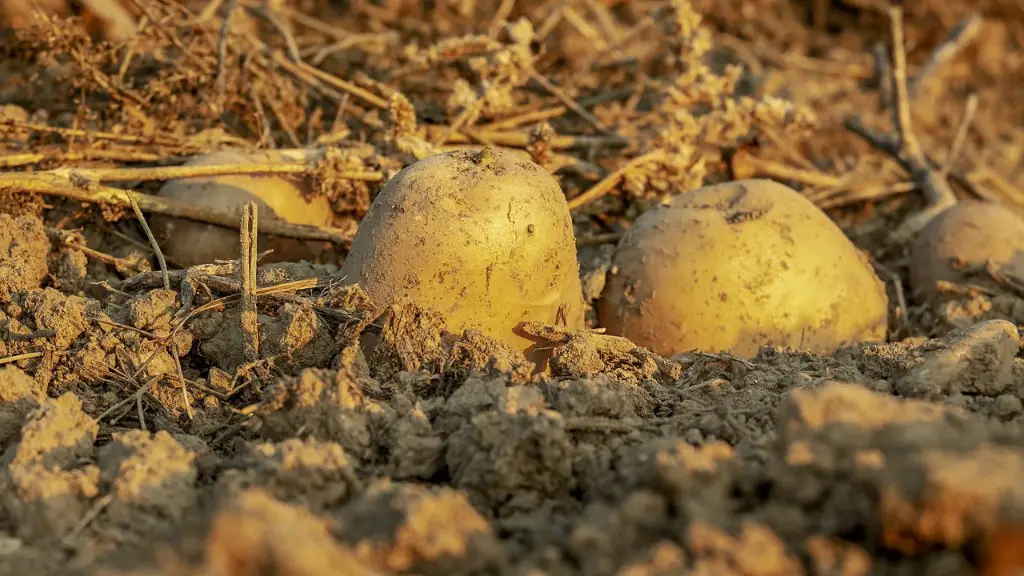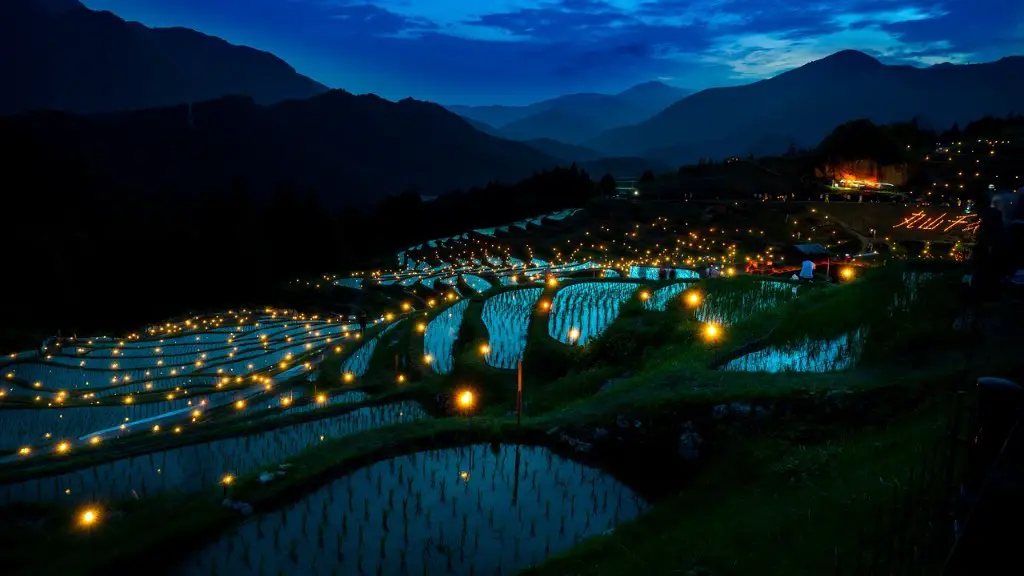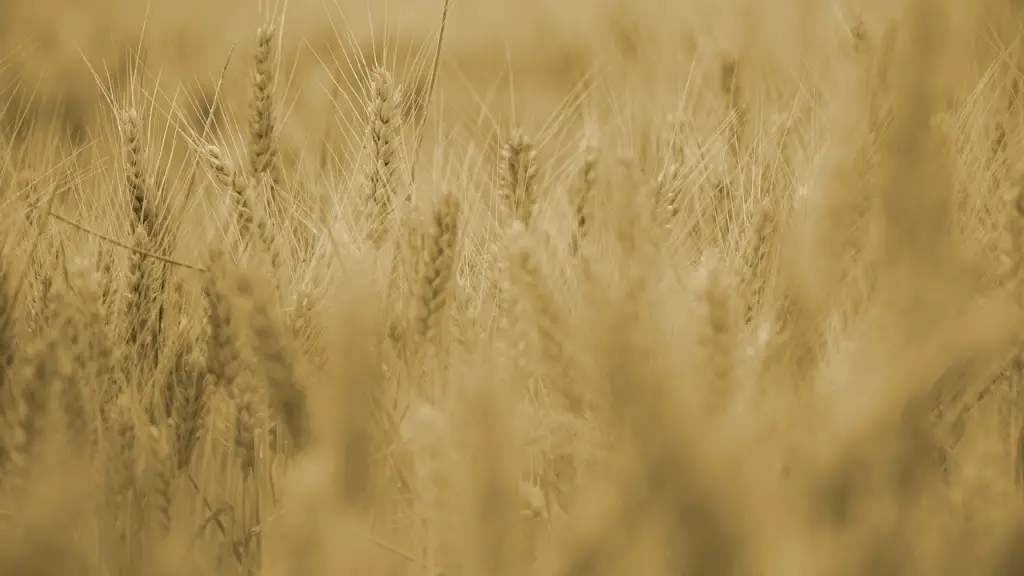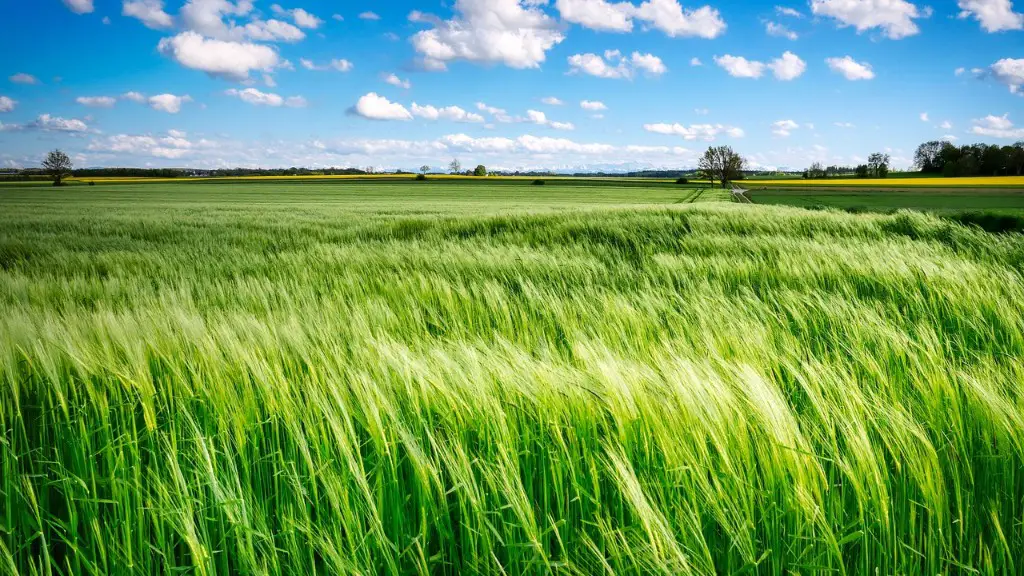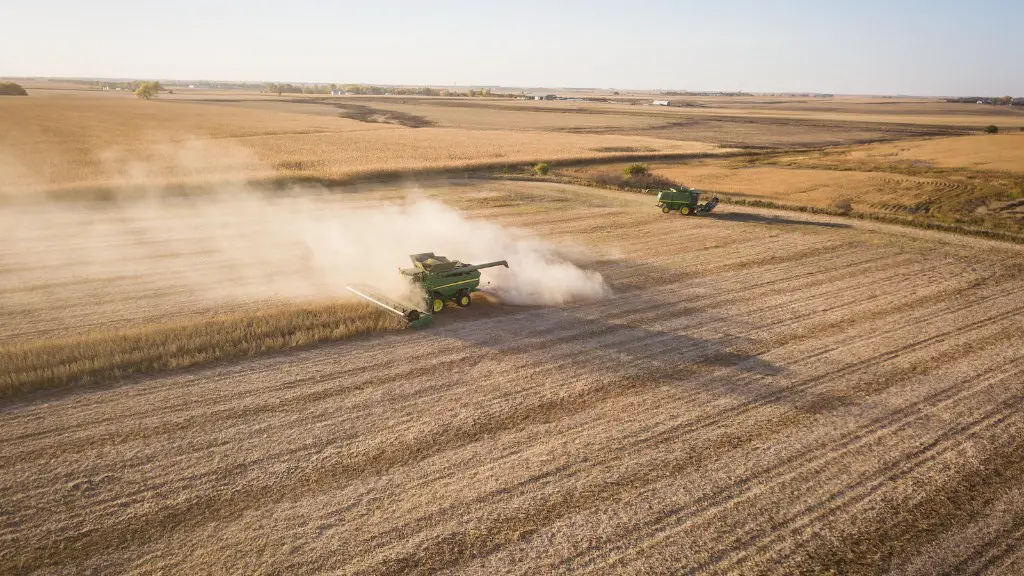Agricultural activities have long been recognized as major drivers of fresh water consumption around the world. Data from the European Environment Agency’s 2020 report shows that within the EU, agriculture accounts for almost 70% of water consumption and utilization. That figure is even higher in some parts of Asia and South America, where agricultural activities account for a staggering 90% of water consumption in arid or semi-arid regions. The agricultural sector is the cornerstone of global food production, with 70% of available freshwater sources used to feed the world’s population, so it’s no wonder that it’s often the source of the most water consumption.
The quantity of water that agricultural activities consume depends on the type of crop and the region’s climate, but estimates suggest agricultural irrigation alone can use up to 70% of freshwater sources in some areas. While efficient and sustainable irrigation methods can reduce water consumption, the fact remains that global agricultural activities are one of the major sources of water consumption. Complicating matters, many agricultural activities take place in dryer, arid regions and are often managed by small-scale farmers, who often do not have access to the latest irrigation technologies.
However, the agricultural sector is changing, and new technologies are being developed constantly to make agricultural activities more water-efficient. Water-conserving irrigation methods, including drip and spray irrigation, are becoming increasingly commonplace, and technologies like desalination, water reuse, and aquifer storage and recovery are being developed to minimize water usage. Governments in many countries are also investing in water-conservation initiatives, such as projects to improve existing irrigation systems, to further reduce water consumption in agriculture.
The fact remains, however, that the agricultural sector remains one of the biggest consumers of water worldwide. Agricultural activities, particularly irrigated agriculture, use large amounts of water for activities such as crop production and livestock. This has serious consequences for local water populations and ecosystems, and can also lead to water shortages and droughts in certain regions. Combined with the effects of climate change, water scarcity can lead to devastating consequences. As such, it is important for governments and international bodies to create strategies to reduce water consumption in the agricultural sector.
In conclusion, agricultural activities account for much of the water consumed globally. Agriculture is an indispensable element of global food production, and measures must be taken to ensure water consumption is reduced or managed sustainably. In the face of a changing climate, governmental and international bodies must continue to develop and implement strategies to ensure water conservation in agricultural activities.
The Impact of Agricultural Activities on Water Resources
Agricultural activities are the largest consumers of freshwater resources. Data from the World Bank concludes that the agricultural sector accounts for 70% of total freshwater withdrawals worldwide. This is due to the nature of agricultural activities, as they often require intensive irrigation, water storage reservoirs, and other technologies to promote food production. This can also lead to groundwater depletion and soil salinization, which if left unchecked can result in devastating environmental and social consequences.
Furthermore, agricultural activities have a significant impact on local water resources. Water extraction for the agricultural sector often leads to an increase in the level of pollutants in water bodies, a weakened water flow rate, and an increase in water shortages. This has serious consequences for local ecosystems, including loss of habitats and a decrease in biodiversity. In addition, water scarcity resulting from agricultural activities can lead to socioeconomic challenges, as farming communities are often dependent on local water resources for their livelihoods.
It is therefore essential that governments and global institutions take steps to reduce water consumption for agricultural activities. Sustainable irrigation systems, improved water storage facilities, and efficient water-conservation methods are becoming increasingly available, and should be utilised to minimise water use in agricultural activities. To this end, various initiatives and funding schemes have been implemented in the past, such as the Water for Agriculture, Irrigation for Alleviation of Poverty and Hunger, and the Integrated Water Resource Management programs, to promote sustainable management of agricultural water resources.
Water Conservation Technologies in Agriculture
In recent years, a variety of water conservation technologies have been developed to improve water efficiency and reduce water consumption in the agricultural sector. These include technologies such as drip irrigation, rainwater harvesting, and aquifer storage and recovery systems. The use of drip irrigation is particularly effective, as it requires very low pressure to operate and can be easily installed and maintained. Furthermore, water-conserving irrigation methods, such as surface and subsurface irrigation and gravity-fed systems, can reduce water consumption significantly.
Rainwater harvesting and aquifer storage and recovery systems are also becoming increasingly popular, as these technologies are more cost-effective and sustainable than traditional water management methods. Rainwater harvesting systems can collect, store, and redistribute rainwater for agriculture, while aquifer storage and recovery systems allow stored water to be reused for various purposes, such as irrigation. Both of these technologies can substantially reduce water consumption in the agricultural sector.
In addition, many farmers are implementing Integrated Water Management (IWM) systems to improve water efficiency. This system works to reduce water consumption by integrating water conservation and management practices, such as mulching, irrigation, and soil and landscape management. Furthermore, IWM systems also promote soil conservation and water-use efficiency, enabling farmers to reduce water consumption while still producing the same or better yields.
Effects of Climate Change on Water Consumption in Agriculture
Climate change can have a significant impact on water consumption in the agricultural sector. Global warming has been linked to an increase in extreme weather events, such as drought and heavy rainfall, which can lead to a decrease in water availability and an increase in water demand. This can particularly affect farmers who depend on local water resources, causing irrigation difficulties and crop failure. Furthermore, climate change is also predicted to lead to increased water stress and competition between different users, requiring better management of water resources across all sectors.
In addition, climate change is also predicted to cause water security and water scarcity issues, as well as an increase in floods and landslides in certain regions. Heavy rains and floods can lead to an increased risk of water pollution, and can also damage agricultural infrastructure and crops. Therefore, it is essential to address the risks posed by climate change, and to implement sustainable water management methods that reduce water consumption and improve water security.
Furthermore, governments and international bodies are investing heavily in climate adaptation and water security initiatives to improve water management. These initiatives often involve the implementation of water-conserving irrigation systems, such as drip irrigation, and the introduction of climate-resilient crops or drought-tolerant varieties. Such measures can help farmers better cope with the effects of climate change, and reduce water consumption in the agricultural sector.
The Role of Small-Scale Farming
Small-scale farming is a key part of agricultural production in many countries. It accounts for the majority of food production in some regions, and most of this is done without the aid of modern irrigation technologies. As such, small-scale farmers often rely on traditional practices such as flood irrigation, which can lead to high levels of water wastage, or on shared water resources, which can also have unpleasant impacts. Furthermore, many small-scale farmers lack the resources and knowledge to utilise modern water-conserving technologies, such as drip irrigation.
Therefore, there is a need to develop initiatives that help small-scale farmers better manage their water resources, and to provide adequate training and access to the water-conservation technologies required to reduce agricultural water consumption. Government initiatives, such as the Rural Water Projects, can help small-scale farmers gain access to sustainable water management practices, and can also provide information and training on how best to utilise modern irrigation technologies.
In addition, agricultural policies that incentivise and support sustainable water management practices amongst small-scale farmers can also help. The Sustainable Agriculture Working Group of the Global Environment Facility’s Sustainable Blue Economy initiative recommends governments to invest in public-private partnerships that promote sustainable water management practices in the agricultural sector. Such initiatives can go a long way in helping small-scale farmers improve their water management practices.
International Cooperation to Ensure Sustainable Water Consumption in Agriculture
International cooperation plays a vital role in ensuring sustainable water consumption in agriculture. As water is a shared resource, it is essential that governments and international organisations work together and develop policies that promote sustainable water management across all sectors. International institutions, such as the United Nations, have implemented several initiatives to promote sustainable water management, and to ensure that water consumption in the agricultural sector does not exceed the limits of sustainability.
The United Nations has also established the International Water for Life Decade (2005-2015), which encourages countries to collaborate on measures to reduce water consumption and promote more efficient and sustainable water management. Similarly, the Agricultural Water Management Strategy, developed by the Food and Agriculture Organization (FAO) of the United Nations, outlines specific strategies that countries should consider to promote sustainable water management in the agricultural sector.
In addition, the United Nations Convention on the Law of Non-Navigational Uses of International Watercourses (UNWC) is a multilateral treaty that sets out an international legal framework for the sharing and management of water resources. This treaty encourages countries to cooperate in developing efficient, sustainable water management practices and to prevent water conflicts between states.
Finally, international funding and financing schemes are also essential in promoting and managing sustainable water consumption in agriculture. The Global Environment Facility (GEF) sponsors many initiatives and projects that aim to reduce water consumption in the agricultural sector, by promoting sustainable irrigation practices, and by assisting countries in developing irrigation technologies and water-conservation techniques.

